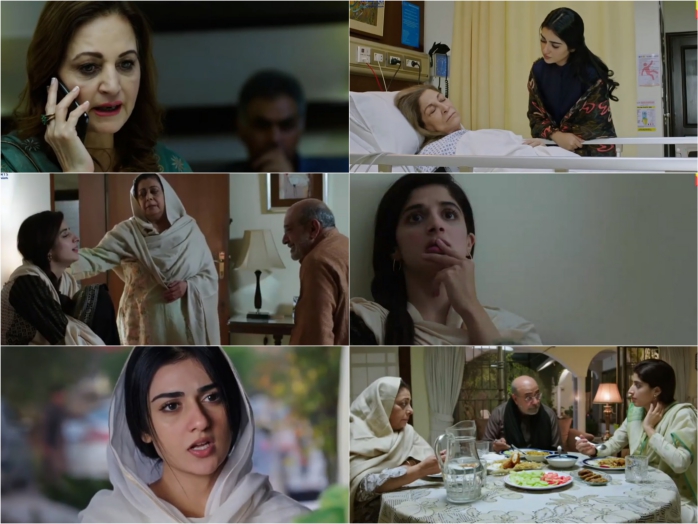

In the courtroom, she sounds like she’s winging it. Accustomed as many of us are to listening to lawyers on The Wire and The Good Wife, in actuality, even people with solid reputations come off more like Lionel Hutz, asking a judge for a “bad court thingy.” Adnan’s family spent $50,000, gathered in part from friends and family, to secure the representation of Christina Gutierrez because she was supposed to be the best. It is astonishing in Koenig’s recordings how inarticulate and borderline incompetent professionals can sound in real life. Koenig says, without exaggeration, that if Gutierrez had not lost her temper at that moment, Adnan’s entire life could have been different.

Gutierrez requested and received a mistrial after she got in a heated fight with the judge and with opposing counsel in a bench conference. Unfortunately, the jury never got to deliberate. Gutierrez’s law clerks polled the jury afterwards and discovered that, even after hearing the bulk of the state’s case, the jurors had not been persuaded of Adnan’s guilt. In the first case, Gutierrez might have been able to use reasonable doubt to Adnan’s advantage. Inasmuch as she had a strategy at all, it boiled down to four words: “Someone else did it.” I never really knew what it would be.” As Koenig plays more and more tape from both trials, this becomes painfully apparent. Although Adnan retains affection for his lawyer, Christina Gutierrez, who was once a force to be reckoned with in the Baltimore area, he acknowledges that “she never really mentioned what her plan would be. The mistrial has been alluded to several times in previous episodes, but here we find out the details. I remember hearing that.” Key heartbreaking quote: “Who would let their daughter date someone named Adnan Musud Syed?”Īdnan, it seems clear, didn’t only need a capable lawyer he needed a good PR person. Another says, “in their culture, Arabic culture, men rule, not women. He wanted control, and she wouldn’t give it to him,” says one juror. “Some cultures treat women as second-class citizens. Koenig hears the same from at least two jurors. The prosecutor isn’t the only one carried away by visions of honor killings. Later, she has to send a letter of correction to the judge admitting that she spoke based on incorrect information, though Koenig points out that there is a factual error even in her apology. The prosecutor contends that young Muslim men jilted by their lovers abound in America, and that these murderers are notorious for escaping justice overseas. Related Storiesĥ Reasons Everyone’s Obsessed with ‘Serial’ government will be helpless to extradite him. Koenig is skeptical, at least until she starts listening to the tapes and discovers plenty of casual prejudice against Muslims and “Arabic cultures,” which are assumed to be one and the same.Īdnan’s bail hearing was recorded, which means we can listen to a prosecutor promising the judge that “if you issue him bail, you are issuing him a passport, under these circumstances, to flee the country.” The upstanding immigrant community that has turned out in droves to support Adnan will have no compunction about secreting him to Pakistan, she claims, where Adnan has an uncle who can “make people disappear.” At that point, the U.S. His mother, interviewed at the top of the episode, insists that anti-immigrant and anti-Muslim feeling worked against her son. Was anti-Muslim sentiment behind Adnan’s conviction, “advertently or inadvertently”? Adnan’s family believes it was. What is the difference, ultimately, between a lie and a story? When everything depends on the outcome, does the person who can tell the best story win? Whom in our deeply flawed criminal justice system can we trust? So many people lie in this episode, or claim others are lying, or are accused of lying themselves. On a meta level, though, considering our ongoing nationwide outrage over the criminal justice system, this episode feels eerily resonant. It largely concerns itself with Adnan’s attorney, Christina Gutierrez. “The Best Defense Is a Good Defense” focuses on the criminal justice system, walking listeners through the two court cases - the first of which ended in a mistrial - that led to Adnan’s conviction. Relitigating the case before the people’s court of public radio is host Sarah Koenig. Based almost exclusively on the testimony of a fellow high-school student named Jay, her ex-boyfriend Adnan Syed was sentenced to life in prison for the crime.

Hae Min Lee, a Korean-American teenager in Baltimore, Maryland, was strangled to death in January 1999. “Serial” is the podcast of the year, an absorbing, deep dive into a closed case, told in roughly 40-minute weekly installments.


 0 kommentar(er)
0 kommentar(er)
